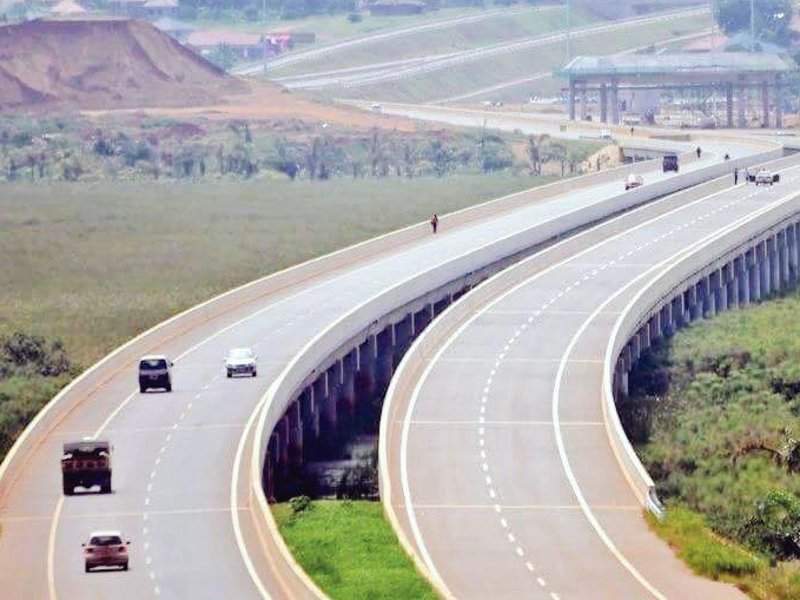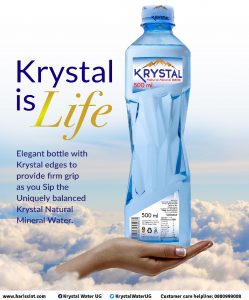TRANSPARENCY: CoST Uganda Commissions 2nd Infrastructure Transparency Index
SOROTI, UGANDA :In 2015 when President Museveni presided over the ground breaking of the Soroti Fruit Processing factory, (now called Teso Fruit Factory) I recall vividly his message to those present then.
“Fruits have more demand and generate more money than coffee. You have now planted 7m trees but that is not enough; they are just one quarter of what is needed, because this factory is going to consume it within a short time”, he said. Today, though, there are over 10 million trees.
Last month (May), the Minister for Trade, Industry and Cooperatives, Hon Amelia Kyambadde visited the factory located in Arapai sub county in Soroti to ascertain how far the works had reached. Her findings were ‘good’. And she announced that the plant would start production by August.
After her visit, the Cooperator Magazine took up the 297 km journey to the plant in Arapai to ascertain what exactly is on ground and to also chat with a few farmers to fact-find whether they are ready for the plant that starts operation in just about 60 days.
Indeed, as I landed at Arapai, I recalled again what President Museveni said as he broke the ground for this giant factory. He said then: “It is very difficult to get entrepreneurs to build a factory because Uganda doesn’t have people with such capacity.” No wonder, the Government of Uganda had to partner with the South Korean Government, through the Korea International Corporation Agency (KOICA) to fund the USD10m project.
The Uganda Government through the Uganda Development Corporation (UDC) that financed the project owns 40% shares while the Teso Tropical Fruit Growers Cooperatives Union (TETFGCU) owns another 40% while KOICA owns 20%.
The factory was built by KOICA who signed the memorandum of understanding with GOU through UDC. Prof. Kyung- Woo-Han, the Korean consultant who was instrumental in the factory designs revealed to the Cooperator that the Korean government had injected in USD$.7.4m as counterpart funding.
“We would have completed this plant way back, but due to design changes, it delayed and shot the costs to an additional USD1m,’ he said.
Prof. Kyung said the plant stands in a land totaling 216000 square feet, while the building (plant) seats on a 3500 square feet space.
Kyung noted that apart from the Korean Government providing machinery, they had also trained the personnel to work in the plant.
“In May with support from UDC, and government, a total of 25 managers had already been recruited. The plant will operate in three shifts churning out 6 tons of concentrate per hour. “We shall have a staff of 57 to operate the orange concentrate plant, while 75 will handle the mango concentrate production per shift,” he explained.
He said the plant will produce fruit concentrates and ready to drink juices produced from oranges, mangoes, papaya, water melon, lemon and pineapple. “One shift will last 8 hours. Each system has a combined multi machine to handle a fruit at a single go,” he said.
He said so far, they had signed MOUs with (TETFGCU) to supply the plant.
It needs to be clear that the plant was due to be completed in 18 months and start operations by 2016. Two years down the road, it is yet to commence operations. According to the Teso Tropical Fruit Growers Cooperative Union, over 30,000 farmers have so far been trained to grow the high yield fruits needed for the plant. The species include: Valencia, Hamline and Washington Navel.
What’s on the ground
All is not lost, despite the long wait. We can reveal here that smiles are high, among the faces of many Teso farmers, now that, the mangoes and oranges that used to rot, and be eaten by the birds, will cease.
When Trade minister visited the plant, test runs were made and all seemed well. “We are now set to commission the plant in August 2018,” she said amidst applause.”
Hon. Amelia Kyambadde revealed to us that President Museveni, who broke the ground for the factory construction in 2015, will be the one to commission the plant in August.
The Teso Fruit Factory Project Coordinator and UDC senior economist, Yudaya Kadondi, said after three months of testing the plant, they will start full scale commercial production.
Though, the Cooperator saw no signs of fruit collection at the 360- ton storage facility, assurances were made that they are on ready and had already made arrangements with farmers regarding the required supplies needed to feed the plant.
What will be produced at the factory?
According to Prof. Kyung, the consultant that designed the plant, the plant has a cold storage plant that can accommodate 360 metric tons of concentrates. The fruits, he said will be supplied by the over 120 farmers under the (TETFGCU). “Unlike other fruit juice processors that produce Tetra Packs, Teso Fruit factory will produce the global acclaimed spout standup ready to drink packs,” he said. He said that it needs an additional USD$1m (UGX3.6b) to set up a tetra plant for ready to drink yet the world is now shifting to the easy to install Spout stand.
He said the plant will produce both concentrates and ready to drink juices that will be sold in neighboring Kenya, Rwanda, Tanzania and South Sudan.
“Our cold rooms can go up-to between 22-25 degrees, meaning we can have the fruits fresh for some time,” he said.
What if the supplies are not met?
This is perhaps the hardest question, a reality that most investors dodge and feel uncomfortable answering. But for Prof Kyung, they seem to have planned in advance. “Initially even before we begun construction works, we asked government if fruit supplies would be forthcoming and we got assurance of that. But we, as designers of the plant, also thought of plan B, just in-case things don’t work out,” he said.
Prof. Kyung, though he decided to keep it a top secret, said UDC has put mechanisms in place to make the plant highly competitive in terms of purchase of fruits from farmers. “We may even be forced to purchase fruit from Kenya or Rwanda so as to meet target. But among all, we shall try to be so competitive in the market,” he said.
He said as consultants they had observed that Teso area is dry and needs irrigation so as to have two seasons of production. “I discussed that with the Hon. Amelia Kyambadde (Trade Minister) and hope it’s considered since we have some money to the tune of USD500m for that ready,” he said.
He however said that should all other factors fail, then they will revert to plan C. Under this plan, says Prof. Kyung, the plant can still be transformed to produce dairy products such ice-cream, yoghurt and cheese or even turned into a bottled water plant. “I designed the factory in such a way that should the fruit production fail, then we can resort to dairy products or bottled mineral water. Since we have already drilled the well and ready for production.”
The Cooperator findings on ground notably indicates that much as there was a perception of presence of fruits like oranges and mangoes, the ones present may not likely be bought by the plant.
Also some farmers in the districts of Amuria, Katakwi, Serere, Bukedea, Kumi and Ngora accused the Teso Tropical Farmers Group of biases.
“We may have gardens of mangoes and oranges, but we are told only members of Teso Tropical Fruit Growers Cooperative Union will be considered first, this to me is a challenge,” said a farmer.
Similarly, other issues that may affect the plant is the fight over the name. initially it was called Soroti Fruit Factory, but has since been changed to Teso Fruit Factory, much as Prof. Kyung finds the name not a big issue, the locals seem to be torn apart between those supporting Soroti Fruit Factory and Teso Fruit Factory.
Perhaps, when the plant starts operations, in August, huge ready to drink juice producers like Coca Cola, Britania Allied Industries that have been importing concentrates from Kenya and India respectively, may resort to the locally produced concentrates so as to add value to our local farmers and improve on their livelihoods.
According Joram Opian, the Teso Tropical Fruit Growers Cooperative Union Chairperson, farmers in Teso and surrounding areas are set to reap big in terms of fruit supply to the plant.
He says unlike now where the farmers are selling a 100kg bag of oranges at hs30,000, they will supply at shs50,000. ENDS







